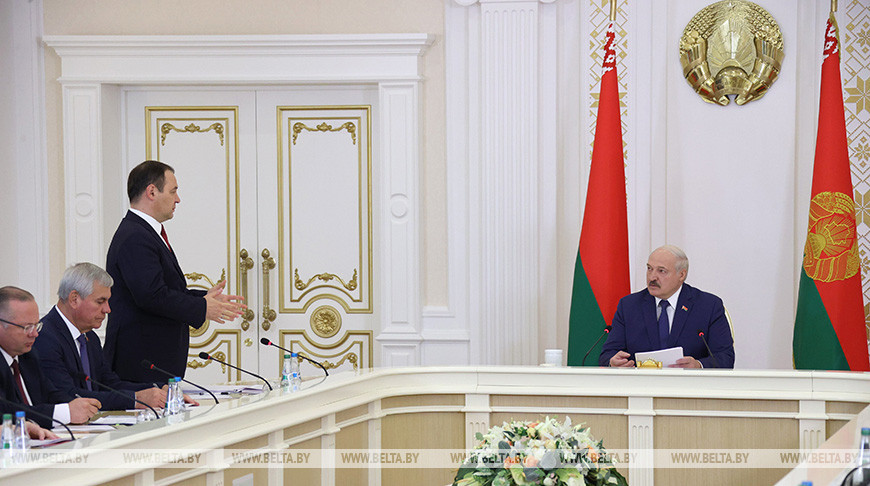Inevitable Dismissal Looms for the Belarusian Government
 The situation got worse
The situation got worse

The top leadership of Belarus continues the policy of supposedly economic growth, “conditioned” mainly by repressive practices. In this regard, nothing has changed since 2020. A serious innovation is that not only living people, but also the dead will be subjected to criminal prosecution.
Lukashenka’s administration has already guessed that things in the economy are not going as brilliantly as all this appears in the government’s optimistic reports. On June 22, at a meeting with the leadership of the Council of Ministers, Aliaksandr Lukashenka said that the government headed by Prime Minister Roman Haloučanka would be dismissed if the set economic indicators for 2023 were not met.
Haloučanka, in turn, promised that by the end of the first half of the year a figure close to the plan would be reached, as “the flywheel of the economy is spinning up.”
In November 2022, Lukashenka approved the parameters of the forecast for the socio-economic development of the country, according to which GDP growth is expected to be 3.8% this year. For the period from January to April, this indicator decreased by 0.6% compared to the same period in 2022. Later, the government reported that in the first five months the country’s economy had entered a growth trajectory, and the GDP growth rate was 0.9% – but such a “start” is critically insufficient to achieve the planned growth level by the end of the year.
The Belarusian leadership considers work with youth to be one of the priorities of domestic policy. On June 23, Lukashenka took part in the republican holiday of graduates of higher education institutions, which took place on the site near the Sports Palace in Minsk, and made a rather long speech about the role of young people in the development of an “independent” and “stable” Belarus.
Against the backdrop of not very clear steps in the field of economics and social policy, the Belarusian leadership continues to practice repressive practices against democrats and dissidents in general. For example, the Supreme Court considered the criminal case against Sviatlana Tsikhanouskaya on appeal and left the sentence unchanged (imprisonment for 15 years).
The House of Representatives (lower house of parliament) of Belarus passed a bill in two readings, allowing criminal cases to be brought against dead persons under ten articles of the Criminal Code. The Prosecutor General’s Office of Belarus, which announced the development of this bill in March 2023, indicated that the amendments would become “a mechanism for bringing to justice those Nazi criminals and their accomplices who, for a number of reasons, including those related to the policies of individual states, have not been brought to justice”.
Subscribe to our newsletter




Situation in Belarus
Constitutional referendum: main consequences


 Video
Video
How to count the political prisoners: are the new criteria needed?


 Video
Video
Paternalism In Decline, Belarusian Euroscepticism, And The Influence Of Russia


 Video
Video












